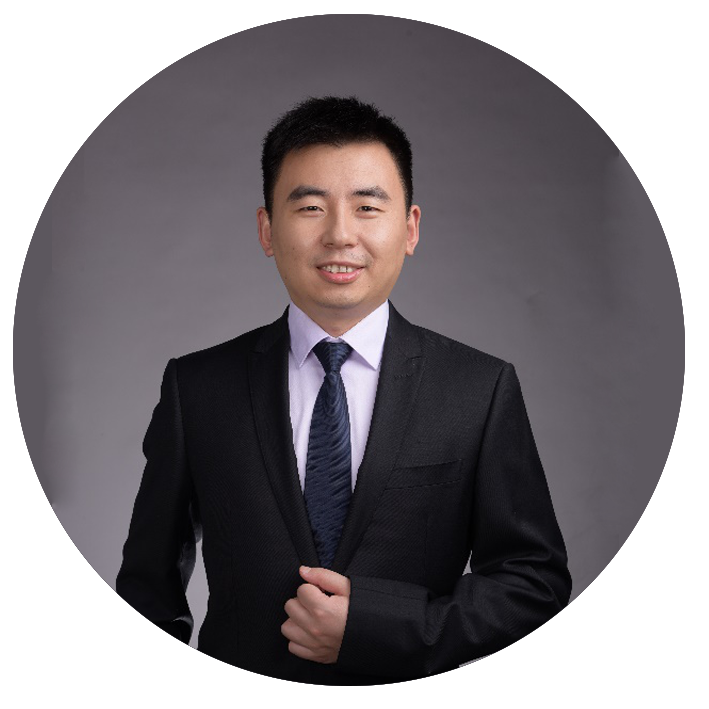Leng Yuquan received his Ph.D. in pattern recognition and intelligent system from the University of Chinese Academy of Sciences in 2017, and was engaged in doctoral research in Shenyang Institute of Automation, Chinese Academy of Sciences - State Key Laboratory of robotics. Since Oct. 2017, he has been engaged in postdoctoral research at South University of science and technology / Southeast University, and served as research assistant professor of department of mechanical and energy engineering since Dec. 2019. His main research interests are human-augmented robot, perception and navigation of robot, and machine learning algorithm. As the project leader, he has presided over three national and provincial level topics. He has published one academic book, more than twenty technical papers and has fifty patents, etc.
Research Area:
human-augmented robot: assist exoskeleton, rehabilitation exoskeleton, prosthesis
perception and navigation for robot: machine vision, SLAM
machine learning algorithm: supervised learning, unsupervised learning, reinforcement learning
Work Experience:
◆ Dec. 2019-present,Research Assistant Professor, Southern University of Science and Technology, Department of Mechanical and Energy Engineering
◆ Oct. 2017-Dec. 2019, Postdoctoral, Southern University of Science and Technology, Department of Mechanical and Energy Engineering
◆ Oct. 2017-Dec. 2019, Visiting scholar, Southern University of Science and Technology, Department of Mechanical and Energy Engineering
Education:
◆ Sep. 2010 - Jan 2017, Shenyang Institute of Automation, Chinese Academy of Sciences, pattern recognition and intelligent system, Ph. D
◆ Sep. 2010 - Jun. 2011, Department of Automation, University of Science and Technology of China, Joint training
◆ September 2006 to July 2010, Harbin University of technology, mechanical design, manufacturing and automation, Bachelor
Representative Books and Papers:
[1] Zhang, H., & Leng, Y*. (2019). Motor Skills Learning and Generalization with Adapted Curvilinear Gaussian Mixture Model. Journal of Intelligent & Robotic Systems, 1-19.
[2] Fu, M#., Leng, Y#., Luo, H., & Zhou, W. (2018). An Occlusion-Aware Framework for Real-Time 3D Pose Tracking. Sensors, 18(8), 2734. (# Equal contribution)
[3] Leng, Y., Yu, C., Zhang, W., Zhang, Y., He, X., & Zhou, W. (2017). Task-oriented hierarchical control architecture for swarm robotic system. Natural Computing, 16(4), 579-596
[4] Leng, Y., Chen, Z, He, X., Zhang, Y., & Zhang, W. (2016). Collision sensing using force/torque sensor. Journal of Sensors, 2016.
[5] Leng, Y., Zhang, Y., He, X., Zhang, W., Luo, H., & Zhou, W. (2015). Omnidirectional analysis of spatial manipulator. Journal of Robotics, 2015, 2.
[6] Leng, Y., Han, X., Zhang, W., & Zhou, W. (2016, June). Improved Hormone-Inspired Model for Hierarchical Self-organization in Swarm Robotics. In International Conference on Swarm Intelligence (pp. 535-543).
[7] Leng, Y., Zhang, Y., Zhang, W., He, X., Bian, D., & Zhou, W. (2015, December). SociBuilder: A novel task-oriented swarm robotic system. In 2015 IEEE International Conference on Robotics and Biomimetics (ROBIO) (pp. 48-53).
[8] Leng, Y., Yu, C., Zhang, W., Zhang, Y., He, X., & Zhou, W. (2015, June). Hierarchical self-organization for task-oriented swarm robotics. In International Conference in Swarm Intelligence (pp. 543-550).
[9] Leng, Y., Zhang, Y., He, X., & Zhou, W. (2014, December). Algorithm for foraging and building task on a novel swarm robotic platform. In 2014 IEEE International Conference on Robotics and Biomimetics (ROBIO 2014) (pp. 2501-2506).
[10] 冷雨泉,张会文,张伟,机器学习入门到实践-Matlab实践应用,清华大学出版社,370千字,2019

YuquanLeng
Research direction:dynamic walking theory, human-augmented robot, perception and navigation for robot, machine learning algorithm
Postbox:lengyq@sustech.edu.cn
Personal Homepage